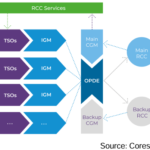The World Food Program says that more than 27 million people have been affected by the worst drought in a century, and 21 million children suffer from malnutrition.
Millions of people across South Africa are going hungry due to historic drought, threatening a widespread humanitarian catastrophe, the United Nations has warned.
Lesotho, Malawi, Namibia, Zambia and Zimbabwe have declared national states of disaster in recent months as drought has destroyed crops and livestock. Angola and Mozambique have also been severely affected, the UN World Food Program said in a press conference, warning that the crisis is expected to worsen until the next harvest season in March or April next year.
“Historic drought – the worst food crisis to date – has devastated the lives of more than 27 million people across the region,” said Thompson Phiri, a spokesman for the World Food Programme. “About 21 million children suffer from malnutrition.
“October in southern Africa marks the beginning of the lean season, and each month is expected to be worse than the previous until next year’s harvest in March and April. Crops have failed, livestock have perished, and children are fortunate to have One meal a day.”
Tens of millions of people in the region depend on small-scale, rain-fed agriculture for their food and money to buy supplies.
Aid agencies warned of a potential disaster late last year, as the El Niño weather phenomenon brought below-average rainfall across the region. Its impact has been further exacerbated by rising temperatures associated with climate change.
In July, a UN official said this was the worst drought to hit the region in a century. Lola Castro, WFP’s acting regional director for southern Africa, said the disease had wiped out 70 percent of the crop in Zambia and 80 percent in Zimbabwe.
A lack of rain has also reduced hydropower capacity in the region, leading to major power outages, while Zimbabwe and Namibia have announced wildlife culls to ease pressure on resources.
Authorities in Namibia and Zimbabwe have resorted to killing wild animals, including elephants, to provide meat for the hungry.
Scientists say that sub-Saharan Africa is one of the regions most vulnerable to climate change due to its heavy reliance on rain-fed agriculture and natural resources. The livelihoods of millions of Africans depend on climate, while poor countries are unable to finance climate change adaptation measures.
Experts also warned that climate change-induced droughts and erratic rainfall patterns are negatively affecting the productivity, development, taste and harvest periods of various crops.



